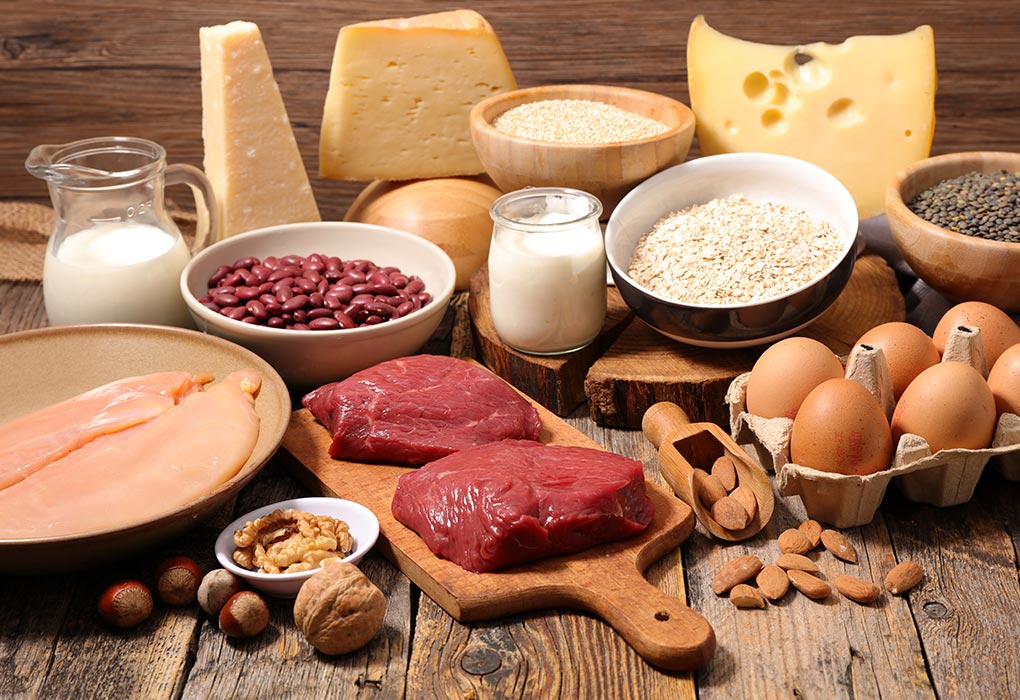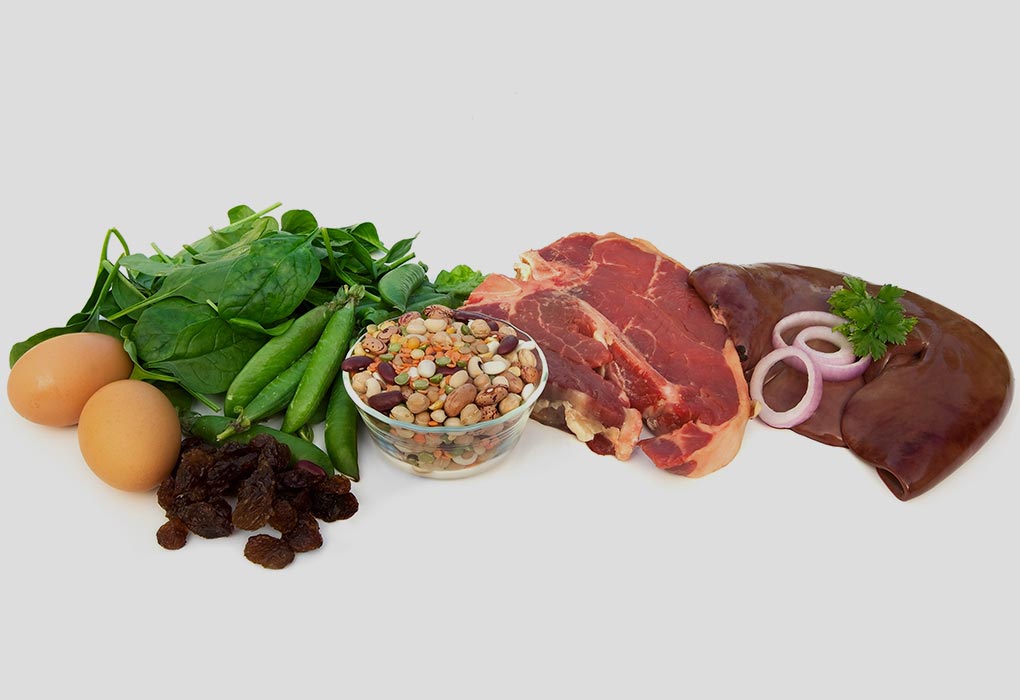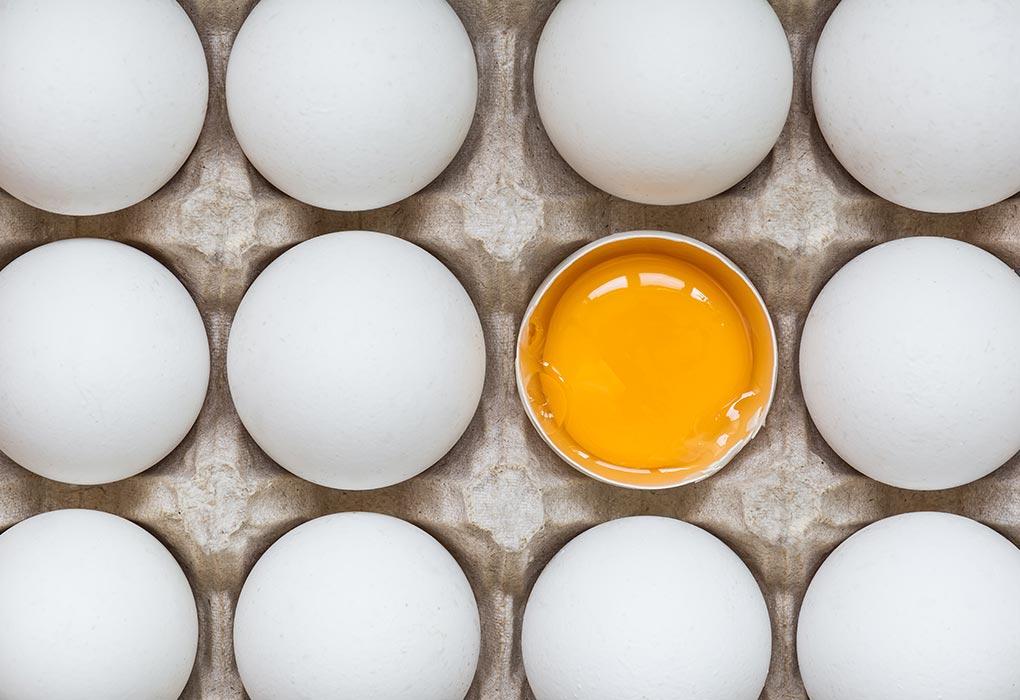In this Article
It is fascinating to see how a baby already knows the way to suck on a breast and swallow the milk, along with various other behavioural patterns. The development of the brain is a key aspect in creating a fully functional human and parents often wonder in which month baby brain development during pregnancy begins. While the answer in itself is quite astounding, there are many factors that you need to be aware of to understand your baby’s brain development better.
Baby Brain Anatomy
Just like any other adult human brain, the baby’s brain also consists of a few major sections that control all of the activities required for the body to function properly.
1. Hypothalamus
The sensations that control the feeling of hunger and thirst, along with the necessity to fall asleep and feel different emotions, all stem from the hypothalamus. Furthermore, it also is responsible for maintaining an optimal temperature of the body.
2. Pituitary Gland
Once a child is born, it needs to conduct a large amount of growth as quickly as possible to survive in the real world. A lot of this is a result of hormones that satisfy the requirements successfully, by promoting growth, setting in place a proper metabolism, and carrying out various bodily activities. These major hormones are all secreted by this tiny gland, which is the size of a pea.
3. The Brain Stem
This may not be precisely considered as a separate part of the brain, but it is quite an important section nonetheless. The brain stem is what keeps the body truly alive, by controlling the action of breathing in air, maintaining a constant heart rate, and regulating the blood pressure.
4. Cerebellum
All the kicking around your baby does, the weird movements he so loves, and the first steps he takes, are all a result of a properly functioning cerebellum. This section of the brain controls all the motor activities of a child.
5. Cerebrum
The largest of them all, this section is big for the very reason a brain exists. The main cortex, the frontal and temporal lobes, all reside in this section, and provide the functionality of feeling emotions, recalling memories, and carrying out thinking processes.
Stages of Baby Brain Development in the Womb
While a child’s brain continues to grow even after birth, some of the major development takes place right within the womb during different phases of the mother’s pregnancy. Here’s how a fetal brain development timeline might look like.
1. First Trimester
Within a couple of weeks following conception, the neural plate of a foetus is already formed. This evolves to become the neural tube, which houses the future development of the brain. Simultaneously, tiny neural cells travel across the embryo and lay the initial pathways for the nerves. This gives rise to the initial movements of the baby within the womb.
2. Second Trimester
The second trimester initiates with the development of breathing patterns as well as various sucking impulses. Slowly and steadily, kicks and jabs will begin to take place as motor control sets in gradually. The nerves are protected by a cover of myelin, causing communication to set in rapidly and manifest in the form of blinking eyes and rapid heart rate. Sensory perception begins to quickly evolve, with aural development taking the lead. Your baby begins to sleep and dream as well.
3. Third Trimester
In the final phase, the networking of nerves reaches a completion and the brain weight begins to rapidly increase. The folds in its tissues begin to form and motor control enhancement reaches its peak. While the cerebrum might be approaching a good size, its actual functioning begins only when the baby is out into the real world, triggered by the stimulus of the environment.
How to Improve Baby Brain Development During Pregnancy
To ensure a healthy and smart baby, we have put together a pregnancy food list for baby brain development, which will help ensure that your little one gets the core elements without fail, along with a proper balanced and healthy diet.
Foods to Eat for Healthy Fetal Brain Development
Apart from the importance of prenatal vitamins for brain development, it is also necessary to include certain key elements in the diet that can provide the necessary support and even a boost to the brain’s growth in a child.
1. Zinc
This might be a trace element found in food sources but plays an essential role in brain development from an early stage.
What It Does
With progress in the growth of the child, the neurons and transmitters that are formed need extensive support to spread their network and make the brain cells stronger. The presence of zinc can prevent the occurrence of any behavioural or learning problems in a child.
Food Sources
Red meat, kidney beans, walnuts, pumpkin seeds, and even spinach are great sources to include zinc in your diet.

2. Protein
A core element of a pregnant mother’s nutrition, it is also a vital one for the baby’s brain development.
What It Does
Protein-rich foods contain numerous amino acids that are required by various parts of the body. These also work in enhancing the function of brain cells and develop a brain that is healthy in every aspect.
Food Sources
Eggs, legumes, fish and lean meats are some of the best sources to satisfy your protein requirement.

3. Iodine
There is a reason why the government enforces a presence of iodine in the daily salts, which is connected to brain development directly.
What It Does
Right from the prenatal stage, iodine begins to work in carrying out the development of the spinal cord and connecting parts of the brain. Any deficiency in that regard can leave the child cognitively impaired and even set in a premature delivery.
Food Sources
Apart from salt, strawberries and yoghurt can also contain iodine in good quantities.

4. Iron
Iron might be recommended for women to prevent premature deliveries, but it also is essential for the child’s neural development.
What It Does
The brain’s proper functioning is highly reliant on the neurons being able to transmit communication signals between them effectively. This is precisely what the presence of iron improves and enhances thoroughly.
Food Sources
Spinach, raisins and various lentils contain a good proportion of iron in them.

5. Choline
Many parents might not be aware of a nutrient such as this, but a proper development of the baby’s brain is highly dependent on its presence.
What It Does
The reduction in chances of defects in the formation of the baby’s neural tube as well as the foundation of memory and learning abilities are all a result of choline’s presence in substantial quantities. This is also why choline is generally termed as a super nutrient.
Food Sources
Chicken, pork, and potatoes are great ways to introduce choline in your diet.

6. Folate
The number of times consumption of folate is stressed to a pregnant woman would be countless. And that is with good reason.
What It Does
Many babies are born with a malformed spinal cord or an incomplete brain, leading to a major neural tube defect. Intake of folate can considerably reduce the chances of such defects, even before conceiving the child in the first place.
Food Sources
Beetroot, avocado, orange juice, and green leafy vegetables are friends of folate.

Factors that are Harmful to Baby’s Brain Development During Pregnancy
The factors that cause various fetal brain development problems can be as varied as the problems themselves.
1. Exposure to Toxic Substances
Even the simplest fumes emerging from cars and new paints can affect the foetus in various ways. Certain elements such as lead, arsenic, mercury are observed in paints used at home or newly polished furniture, all of which can be easily inhaled and lead to developmental problems in the child’s brain.
2. Presence of Rubella
While rubella might not be as harmful to the mother, the effects it has on the child within her womb are substantial. If a mother contracts rubella in the initial months of her pregnancy, the child can suffer from cataracts, deafness and even be born retarded.
3. Pesticides
No matter how cleanly you wash your vegetables before cooking them or eating them raw, the chances of pesticide exposure have never been as high as it currently is. Opting for organic food products is highly recommended.
4. Heroin Usage
Drug usage is in any case quite harmful. But heroin usage is quite dangerous since the baby can be born with a heroin dependency, and even exhibit certain disorders in interacting socially with others.
5. Cocaine Usage
Unlike heroin, cocaine affects the physical development of the child’s brain directly. Such babies are born with a tiny skull, leading to extreme retardation or even fatal brain haemorrhage.
6. Marijuana Usage
While marijuana might be considered a recreational drug by many, its use during pregnancy is highly detrimental to the baby’s development, causing speech-related defects and memory problems.
7. Drugs for Epilepsy
Certain women with a propensity for epileptic attacks might be prescribed drugs, which need to be stopped or replaced during pregnancy since they can result in babies being born with a substantially lower IQ.
8. Exposure to Pollution
A check needs to be kept in the exposure to traffic-related pollution and any kind of pollutants present in the air since their inhalation can result in a child being born with autistic tendencies.
9. Alcohol Consumption
No rationalization around the amount of alcohol consumption is possible for a pregnant woman. Any amount can find its way directly to the baby via the placenta and lead to a massive damage to the nascent nervous system.
10. Tobacco Usage
Whether it is via smoking or by chewing tobacco, nicotine affects the child just as much it affects the adult brain. Such children can develop physical abnormalities such as being born cross-eyed or even have psychiatric issues later in life.
11. Reduced Sun Exposure
A mother who is primarily indoors throughout her pregnancy can risk a development of multiple sclerosis in her foetus along with a hindered nervous system development.
12. Psychiatric Issues in The Mother
Pregnant women suffering from depression or any kind of psychiatric disorder are at a higher risk of transferring the same and affect the unborn baby’s brain development with various anomalies.
13. Presence of Stress
While stress is also related to the mother’s mental state, it can manifest in ways that can cause a woman to starve herself and prevent the baby from getting the nutrition it needs.
14. Medications
Once the pregnancy is detected, a woman is advised to stay away from any kind of medication as a general rule. Even the simplest medicines such as aspirin, or any painkillers, have been known to fatally affect brain development in the foetus.
15. Deficiency of Vitamin D
While exposure to sunlight is one factor, the deficiency of vitamin D from other sources might end up in a child being born with respiratory issues as well as suffer from language processing disorders ahead in life.
16. Deficiency of Folic Acid
Folic acid is highly stressed as a vital nutrient for a pregnant woman to include in her diet. Failure to do so causes the neural tube enclosing the brain and spinal cord to remain open, and give rise to numerous malformations.
17. Insufficient Nutrition
If certain elements are extremely vital, there are many others that need to be present in the right quantities for the baby’s development to proceed normally. All of these elements make sure that the presence of other factors supporting the brain development continues to stay so, and their absence could affect the development of various skills in the child’s later life.
18. Premature Delivery
Many premature babies can properly survive after completing a specific number of weeks in the womb. However, their brain development does take a hit since a majority of it takes place within the mother’s body, causing such kids to exhibit poor performance in school.
19. The Job of The Father
Even if the mother keeps herself safe from harmful substances, the exposure of the father to certain elements can put the baby at risk indirectly. Such elements can either enter the body or affect the sperm to cause brain-related disorders.
20. Parental Age
A child conceived by parents who are older than 35 or 40 years old, is at a higher risk of developing mental disorders. While some might be developmental, others could be psychiatric causing severe behavioural issues in many cases.
Understanding the prenatal brain development from conception to birth can leave you fascinated and stunned at the marvellous process that gives rise to a fully formed baby. However, your own support and vigilance are quite necessary for ensuring that this magical journey doesn’t face any untoward problems.









